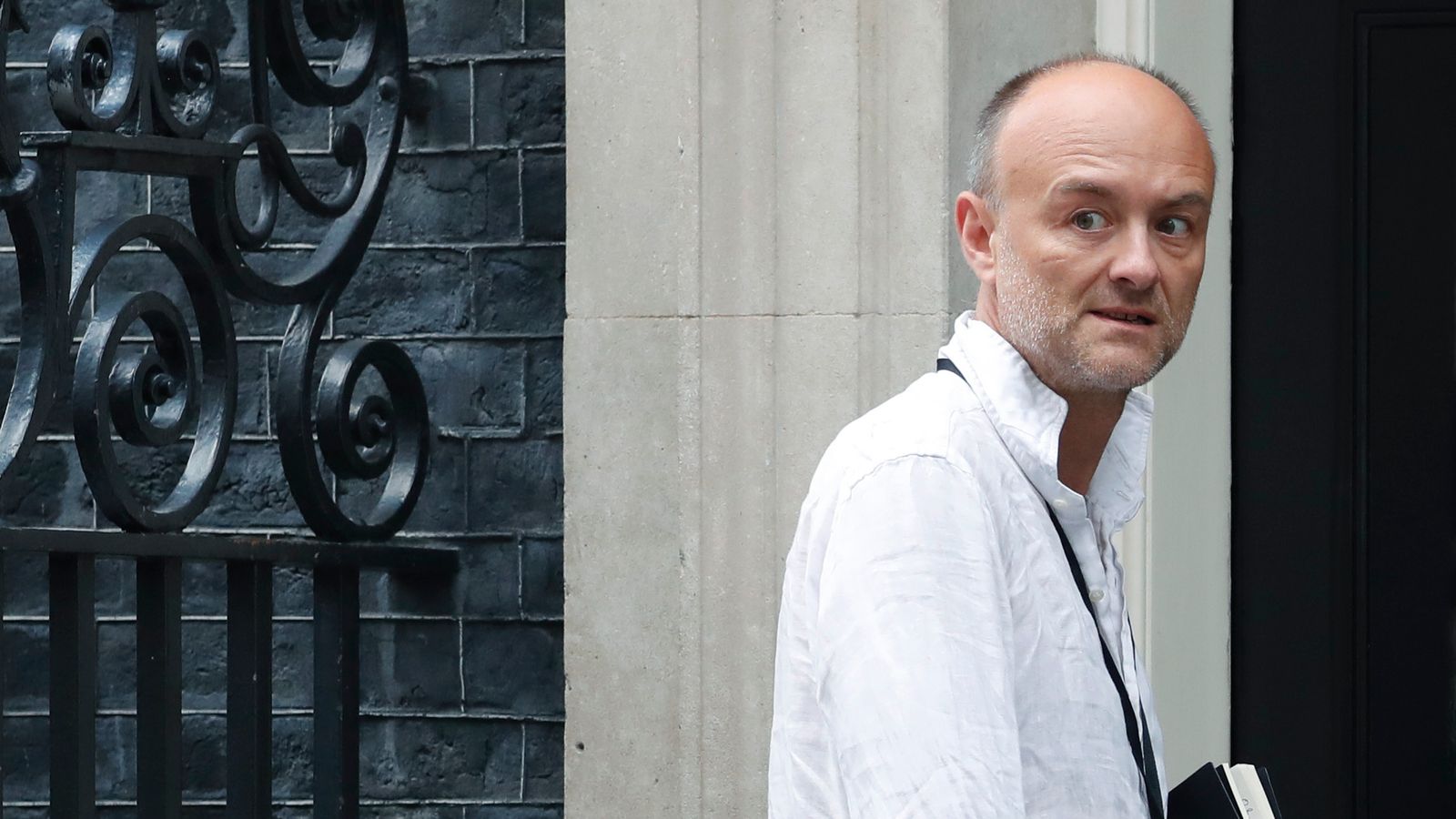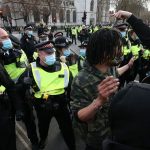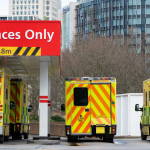Dominic Cummings says the government’s strategy in the initial phase of the pandemic was based on an “assumption” the spread of COVID-19 was inevitable and could not be contained by restrictions.
It comes on the eve of what is expected to be a dramatic and lengthy appearance in front of a joint inquiry by the health and science select committees into what lessons can be drawn from the handling of COVID-19.
Downing Street is braced for a slew of potentially damaging accusations to be made by the man who was once the prime minister’s most senior adviser, but has since become one of the most vocal critics of Boris Johnson, his government and its institutions.
60/ Re 'herd immunity': the *official pandemic preparation plan* spelled out explicitly why the 'optimal strategy' was defined in Feb/March as 'single peak', herd immunity by Sep. When crisis hit, this assumption governed thinking: pic.twitter.com/iPK7dlVpEL
In the 60th post in an on-going Twitter thread started last week, Mr Cummings included a screenshot from a document he described as the “official pandemic preparation plan” from the initial phase of the COVID outbreak in the UK.
He said it “spelled out explicitly” that the strategy in February and March last year was to avoid the risk of a second peak in the winter by achieving “herd immunity” via a single wave of infections by September 2020.
The document sets out that vaccines, which provide the only way to achieve herd immunity without infections, were unlikely to be available from manufacturers until later that autumn.
He highlights a passage from the document which says “the expectation must be that the virus will inevitably spread and that any local measures taken to disrupt or reduce the spread are likely to have very limited or partial success at a national level and cannot be relied on as a way to ‘buy time'”.
In his tweet, Mr Cummings said: “When crisis hit, this assumption governed thinking.”
Boris Johnson’s official spokesman has said “herd immunity from infection has never been government policy”.
Government sources have suggested Mr Cummings is attempting to distance himself from decisions taken at a point when he wielded enormous influence at the heart of Downing Street.
It is expected that many of the 20 MPs who will be given the opportunity to question the former adviser during the session will challenge him on his recollection of events and the extent to which he takes any personal responsibility.
Mr Cummings, who a year ago gained public notoriety for his own lockdown-breaking trip to Barnard Castle, has repeatedly suggested in recent days that the government’s failure to lockdown sooner cost thousands of lives.
He has claimed to have “the only copy of a crucial historical document” related to the early phase of the pandemic; described the government’s border policy as “a joke” and argued greater transparency would have exposed government errors earlier.
A post at the weekend claimed it was not until the week starting 9 March that Health Secretary Matt Hancock and officials in the Cabinet Office “understood herd immunity effects”, suggesting the strategy would lead to “100s of 1000s choking to death + no NHS for *anybody* for months + dead unburied + econ[omic] implosion; so we moved to Plan B”.
In a previous select committee appearance, he described the Department of Health and Social Care as “a smoking ruin” in relation to its handling of PPE procurement during the first few months of the crisis.
62/ One of the worst failings in Feb/March, less discussed than lockdown, was the almost total absence of a serious plan for shielding/social care. As in general, there was widespread delusion we HAD a great plan. It turned out to barely exist…
In an indication he intends to continue to pile pressure on the health secretary, Mr Cummings posted further social media criticism of his department on Tuesday afternoon.
In it he said “one of the worst failings in Feb/March, less discussed than lockdown, was the almost total absence of a serious plan for shielding/social care. As in general, there was widespread delusion we HAD a great plan. It turned out to barely exist”.
He went on: “the official plan was ‘don’t put a helpline number on the shielding letters because we haven’t sorted out the helplines'”.
Dominic Cummings was brought into Downing Street by Boris Johnson when he became leader of the Conservative Party in 2019.
The former campaign director for Vote Leave during the Brexit referendum in 2016 had previously served as a special adviser to Michael Gove during David Cameron’s premiership.
Mr Cummings was sacked on the orders of the former prime minister for briefing against the government. Mr Cameron is reported to have described Mr Cummings as a “career psychopath”.
Throughout his time advising Mr Johnson he made no secret of his hostility towards the civil service and MPs who were opposed to Brexit.
He was ousted from Downing Street in November 2020 after months of feuding with allies of the prime minister’s fiancee Carrie Symonds – famously walking out of the front door of Number 10 clutching a single cardboard box of his belongings.






















